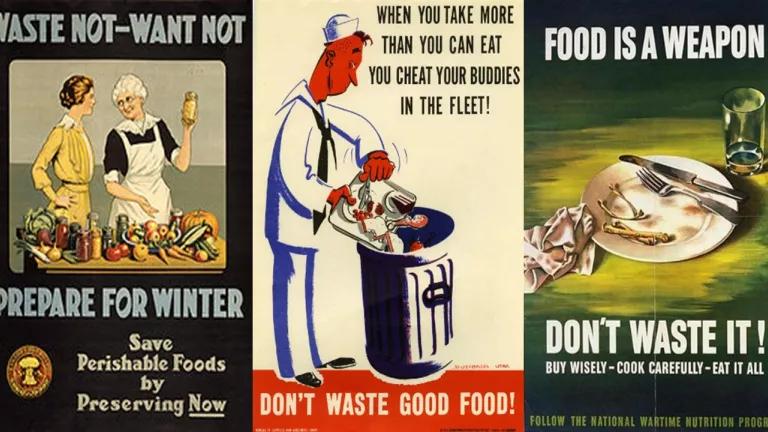Drawing on the Past to Prevent Food Waste Today

This blog was co-authored with Ava Richardson, Former Food Matters Technical Advisor, and Sophia Hosain, Food Matters Fellow, at the Office of Sustainability, City of Baltimore.
We all have a role to play in reducing food waste. While there are many changes that could be made across the supply chain to minimize waste, households are a critical piece of the pie. In ReFED’s 2016 Roadmap to Reduce Food Waste by 20 Percent, the #1 most cost-effective strategy cited for reducing food waste is to educate households. NRDC has long led a consumer awareness campaign on food waste called Save the Food. We hope that by alerting people to the simple actions they could take to reduce food waste, we will effect big change.
As part of Food Matters in Baltimore, an initiative led by the City of Baltimore and NRDC, one of our goals has been to increase resident awareness about food waste and solutions. But, as is often the case, food waste prevention has been the toughest topic to address in Baltimore—preventing food waste is both hard to measure and difficult to connect with broader food system issues. Baltimore City is the largest municipality in the state of Maryland, with 63% of Baltimoreans identifying as Black/African American. Roughly one quarter (24%) of residents live below the federal poverty line and an estimated one third of the city population deals with food insecurity (Census Data, 2019). To increase awareness about food waste in Baltimore, we created culturally appropriate resources, that are now available for use by other organizations, and governments.
To do so, we looked to previous campaigns for inspiration—like the World War I era food waste reduction education campaign launched by the Food Administration in the 1910s (and relaunched in WWII). We loved the vibrant, colorful images, and the compelling messaging on the posters, but wanted to adapt them to be appropriate today, particularly since they were crafted during a time when racial discrimination, traditional gender roles and misogyny permeated public advertisement.
The Food Matters Baltimore team set out to recreate the posters to reflect the values of our time and the racial demographics of Baltimore, while reflecting the spirit of conservation in the early 20th century. The goal was to center Black and African American communities in the food waste narrative for Baltimore and to highlight the enthusiasm of Black, Indigenous and other People of Color (BIPOC) communities to engage in environmentally conscious behaviors. The images in the 2020 versions reflect the diversity of Baltimore as well as of many other cities, towns and jurisdictions across the country.

Baltimore Office of Sustainability worked with talented, local designers and illustrators, Davina Grunstein and Justin Duvall of Matter, to develop the posters. In Baltimore, the graphics will be used on social media, and the posters will be displayed at community centers, schools, on public transit and on trash cans across the city to encourage residents to curb their food waste.
As part of NRDC’s national effort to increase knowledge and awareness about the economic, environmental and social implications of wasted food, these posters are available to be adapted and used by other cities around the U.S. NRDC’s newly launched Food Matters regional initiatives in the Mid-Atlantic and Southeast are focused on scaling resources and lessons learned from partner cities to new cities. We hope that food waste leaders in our regional city cohorts, as well as other cities, will find these new educational materials useful.
If you’d like to adapt the posters to your city or state, please email foodmatters@nrdc.org for more information.

